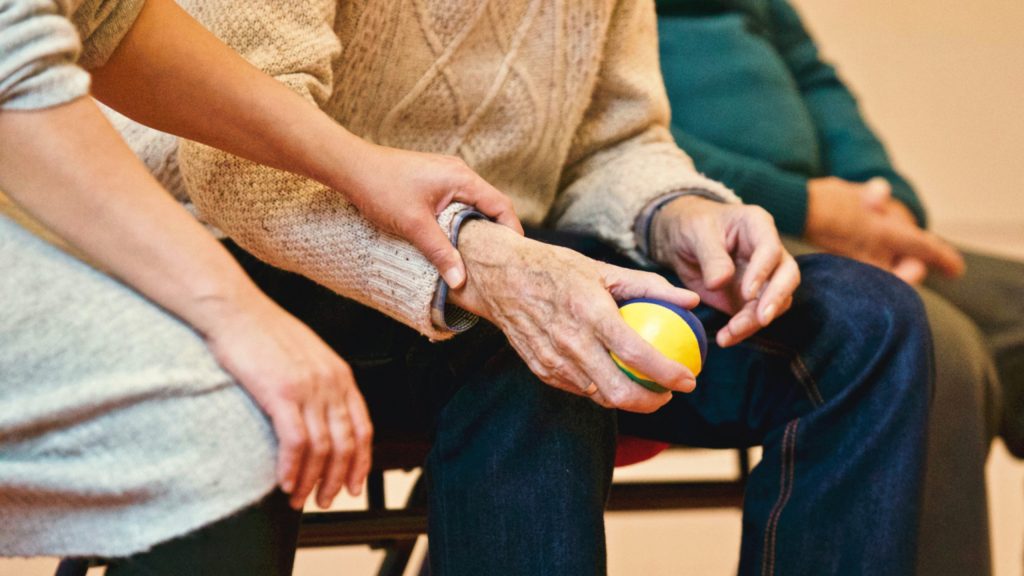By Marie Haaland
New York office - 646-873-7565 / usnews@swns.com
NEWS COPY w/ VIDEO & INFOGRAPHIC
You’re officially old at age 57, according to new research.
A survey of 2,000 Americans pinpointed the age at which people consider themselves old, and revealed it to be a few years before the big six-oh.
More than just looking at what age is “old,” the survey also delved into respondents’ worries as they age, and found there’s more to think about than just gray hair and wrinkles.
Commissioned by LetsGetChecked and conducted by OnePoll, the survey revealed respondents’ overall health to be their top concern.
In addition to their overall health, respondents’ worries included not being able to take care of themselves (34%), being seen as “old” (33%) and having financial security (33%) as they age.
Still, 45% of respondents admitted they aren’t actively saving money for retirement. Of those who are, the average respondent is putting away 19% of their monthly income. For those putting things off, whether it be saving for retirement or otherwise, 34% admit it’s because they don’t want to feel old.
But growing old is inevitable — and two-thirds of respondents say they are in fact taking steps to prepare for their aging.
The survey delved into the steps respondents are taking, looking specifically at those relating to their health and wellness…
Sixty-four percent of respondents say they feel knowledgeable about when they should start being tested for different health issues — and the survey put that to the test.
Turns out, respondents were fairly knowledgeable, even airing a bit on the conservative side. On average, respondents believed testing for breast cancer should begin at age 36 (versus the American Cancer Society’s recommended 40).
And, on average, they believed people should be tested for colon cancer at age 40 (versus the ACS’s recommended 45).
But even though respondents were aware of when they should be tested, 52% still admitted to confusion surrounding the tests and screenings they should be receiving.
The same number (52%) also reported feeling too busy to think about preventative health tests.
And over a third (37%) say they aren’t being tested as often as they should be.
“While the survey shows many people do know when they should be tested, there are still a large number of individuals who aren’t being tested as often as they should be,” said Dr. Robert Mordkin, Chief Medical Officer of LetsGetChecked — the at-home health testing company. “When it comes to a disease like colon cancer, proper screening and diagnosis are especially important, since most people won’t have symptoms in the early stages when it is most beneficial to catch the disease. We understand that not everyone has access to a doctor — particularly at the moment, when social distancing is so important — which is where home health testing comes into play; it makes screening easier and more accessible.”
Dr. Mordkin continued, “If there is one thing we have learned from the coronavirus pandemic, it is the importance of trying to deliver elements of health care in new ways that allow people to conveniently and securely obtain evaluations and results without having to physically access traditional pathways. Hospitals, clinics and physician’s offices are best utilized to help those that are truly ill and need hands-on attention, but for screening purposes it is often better to have these performed offsite. This limits a healthy person’s exposure to potential infections while freeing up the resources of care facilities to be used where they are most needed.”
National guidelines for colon screening, encourage getting checked every two years for those 45 and older, or earlier if you have a family history or concern over symptoms.
AMERICANS’ TOP CONCERNS AS THEY AGE
- Overall health 39%
- Wrinkles 36%
- Weight gain 36%
- Gray hair 35%
- Hair loss 34%
- Not being able to take care of themself 34%
- Age spots 34%
- Being seen as “old” 33%
- Financial security 33%
- Losing their independence 19%
WHAT’S HOLDING AMERICANS BACK FROM BEING TESTED FOR COLON CANCER?
- Worried what the results might show 32%
- Lack of health insurance 31%
- Don’t believe they’re at risk 29%
- Feel embarrassed/uncomfortable being tested 29%
- Don’t have any symptoms of colon cancer 29%
